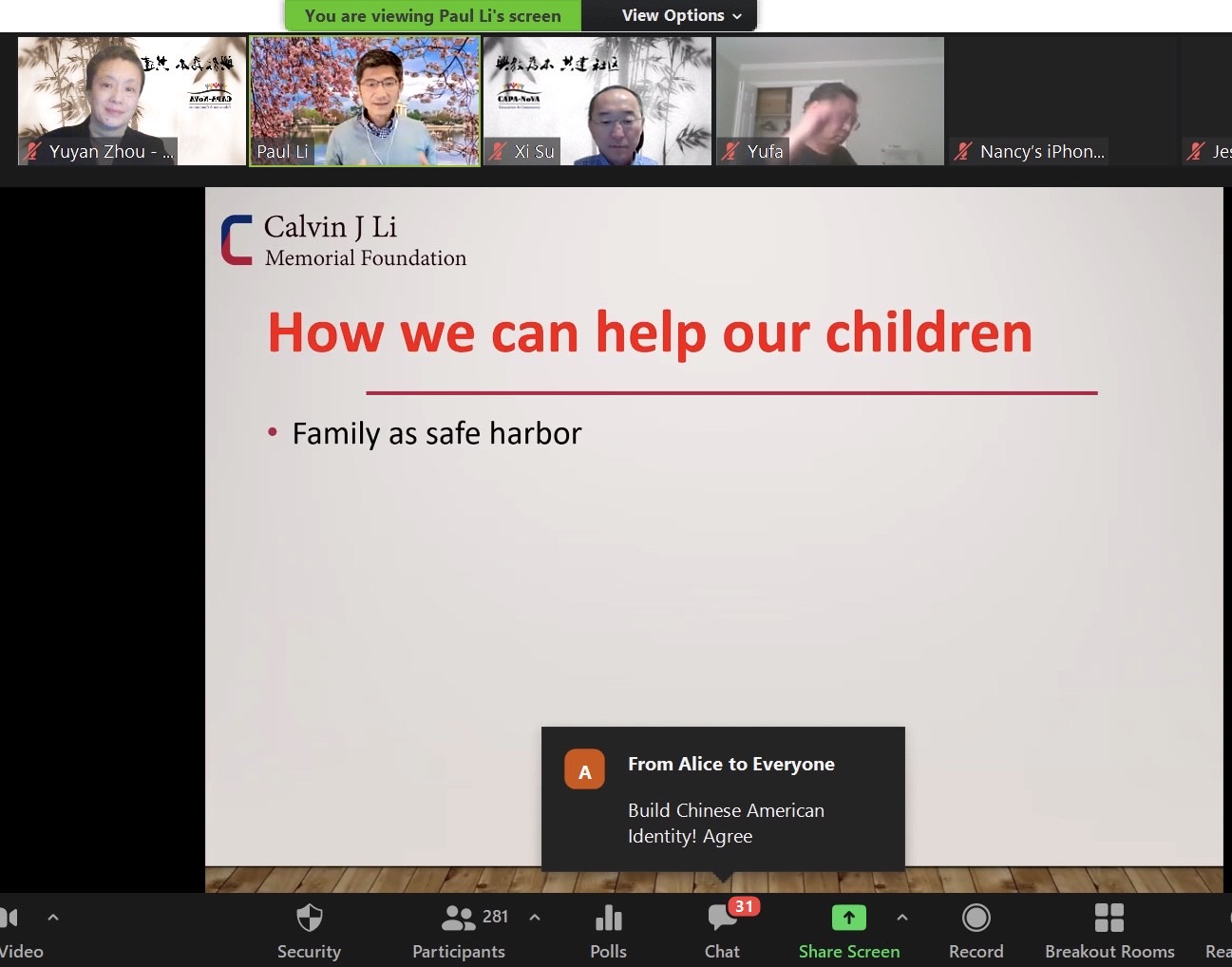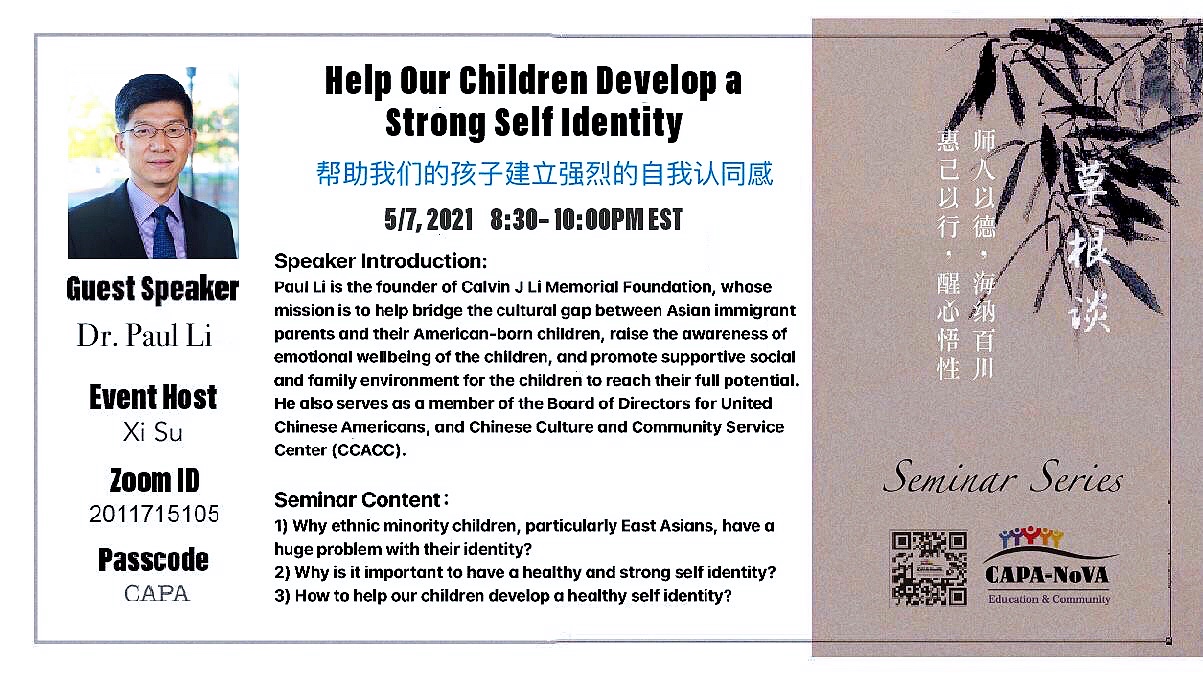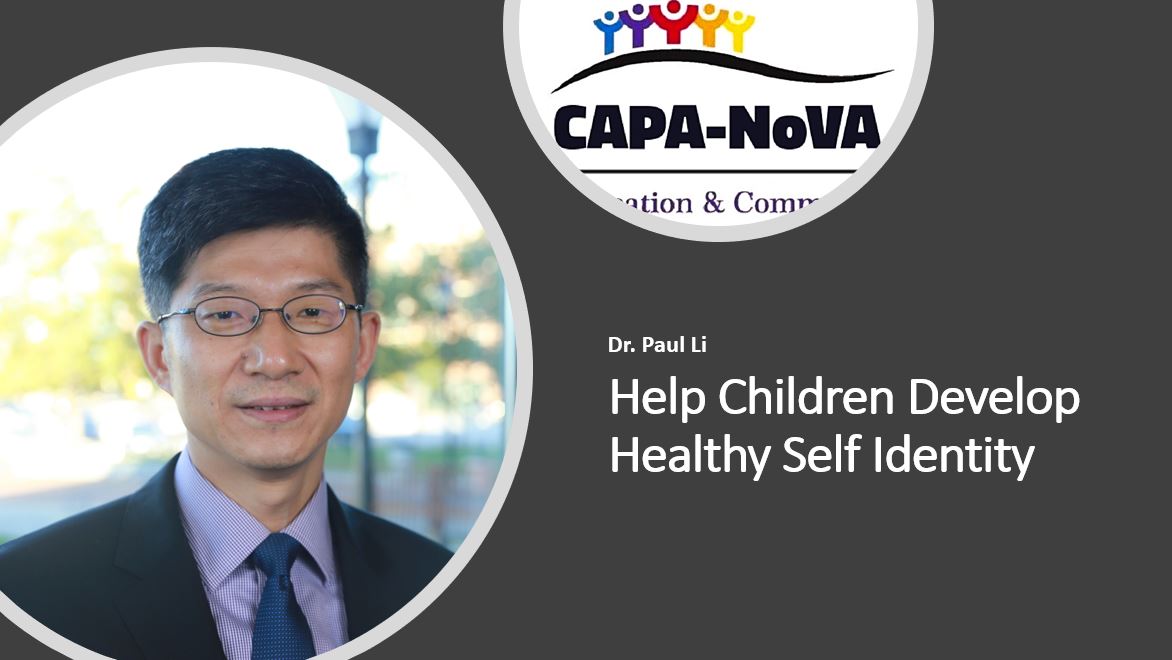[Seminar – 9] Help Children Develop Healthy Self Identity
【讲座 – 第9期】帮助孩子建立健康的自我认同
[Date & Time] Friday, 5/7/2021, 8:30 – 10:00 PM
【时间】星期五2021年5月7日晚上8点半至10点
Speaker Introduction:
Paul Li is the founder of Calvin J Li Memorial Foundation, whose mission is to help bridge the cultural gap between Asian immigrant parents and their American-born children, raise the awareness of emotional wellbeing of the children, and promote supportive social and family environment for the children to reach their full potential. He also serves as a member of the Board of Directors for United Chinese Americans (UCA), and Chinese Culture and Community Service Center (CCACC).
Paul is also the founder of FHL Investment Management Company, serving investment needs for individuals and institutions. Previously he was a partner and senior equity analyst at Brown Advisory, a Baltimore-based investment management company. Paul obtained his Ph. D and MBA from Cornell University, a Master’s degree from Chinese Academy of Sciences, and A Bachelor’s degree from Wuhan University.
Paul came to the US in 1991 from China. He now lives with his wife and daughter in Rockville Maryland.
主讲人简介:
李秋波是李佳信纪念基金的创立者。该基金的使命是构建亚裔移民家庭中父母和孩子两代人之间跨越文化鸿沟的桥梁,增强社区更多关注亚裔孩子成长过程中情感上的需求,为亚裔孩子健康成长营造一个更好的社会和家庭环境。他还是美国华人联合会 (UCA), 和美京华人活动中心 (CCACC) 董事会成员。
李秋波还创立了 FHL 投资管理公司,服务个人及机构的投资需要。之前,他就职于巴尔的摩一家投资公司,是 Brown Advisory 合伙人和资深股权分析师。他拥有康奈尔大学博士和工商管理硕士学位,并中国科学院硕士及武汉大学学士学位。
李秋波于1991从中国来美国,现同其妻子及女儿住在马里兰州的洛克维尔市。
Content:
1) Why ethnic minority children, particularly East Asians, have a huge problem with their identity?
2) Why is it important to have a healthy and strong self identity?
3) How to help our children develop a healthy self identity?
4) Q&A
讲座内容:
1) 为什么少数族裔孩子,尤其是东亚族裔的孩子,存在很大的自我认同问题?
2) 为什么拥有健康而强烈的自我认同很重要?
3) 如何帮助我们的孩子建立健康的自我认同?
4) 自由提问










Written Q&A:
1) How to discuss “Black Lives Matter (BLM)” and “Stop Asian Hate” with children?
A very difficult topic. I had a discussion with my daughter and we disgareed on many points on both issues. I tried to listen to her argumennts first. Then she gave me the chance to provide my views. The objective was not to convince the other who is right and who is wrong, but to understand each other. In the end, we could see the merits of each side of the debate. And we agree to disagree.
2) How to encourage our kids to speak up?
I think it starts from the home. In the end, are our children feel encouraged to speak up? Are we giving them a chance to spreak their mind without the fear of being judged by us the parents.
I think dinner table would be a great place to encourage them to speak. We can use some current topics in the news to solicit their views. After they speak, we should not quickly offer criticism, or go into a long discourse of our own. We would first affirm the merits of their arguments, and ask probing questions to allow them to think even deeper. When we speak, get our points across through telling a story is always better than just preaching a dry lesson.

Special Thanks to Calvin J Li Memorial Foundation


 and Don’ts
and Don’ts of Parental Involvement During College Admissions
of Parental Involvement During College Admissions